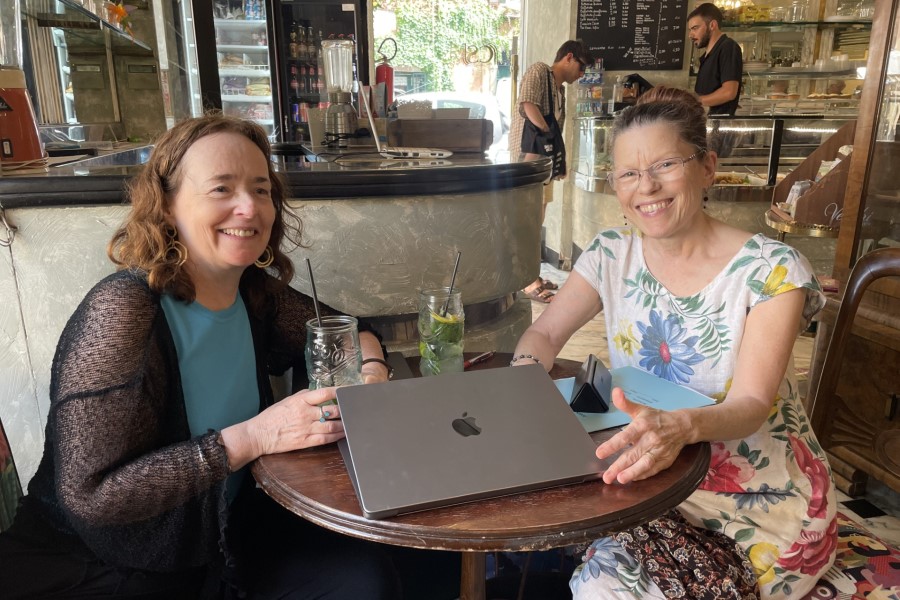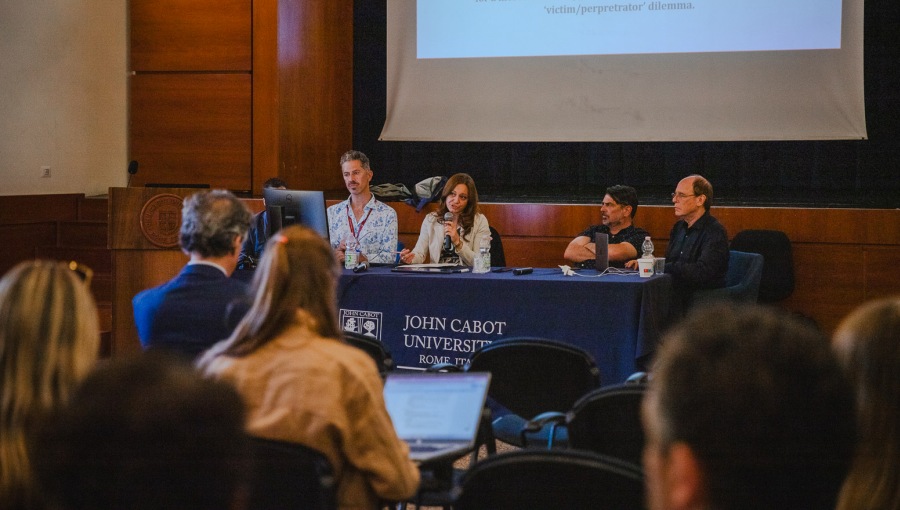JCU and UNICRI Announce Ninth Edition of Summer School on Migration and Human Rights
John Cabot University, in collaboration with the United Nations Interregional Crime and Justice Research Institute (UNICRI), is happy to announce the ninth edition of the Summer School on Migration and Human Rights, which will be delivered from July 8 to 12, 2024.

As reported by the United Nations High Commissioner for Refugees (UNHCR), global displacement grew by 21% in 2022, reaching 108.4 million people by the end of the year due to persecution, conflict, violence, human rights violations, or events seriously disturbing public order. More than 1 in 74 people worldwide remained forcibly displaced, with almost 90% of them in low- and middle-income countries. Among those forcibly displaced, internally displaced persons (IDPs) numbered over 62.5 million in 2022, and refugees numbered over 35.3 million. In 2022, 54% of all forms of internal displacement were caused by disasters.
Although numerous international legal instruments are in place to ensure the protection of human rights for migrants, asylum seekers and refugees, and trafficking victims, violations frequently occur. Despite the potentially significant benefits of migration, irregular and low-skilled economic migrants, smuggled migrants, asylum seekers and refugees, and victims of trafficking remain among the most vulnerable members of our society. They are exposed to discrimination, abuse, and exploitation by various actors, including transnational organized crime networks and terrorist organizations.
The 2030 UN Agenda for Sustainable Development includes in Sustainable Development Goal (SDG) 10, Target 7 a pledge by United Nations’ Member States to “Facilitate orderly, safe, regular and responsible migration and mobility of people, including through the implementation of planned and well-managed migration policies.” Moreover, the adoption in 2018 of two Global Compacts, respectively, on Safe, Orderly and Regular Migration and on Refugees is a clear indicator of the relevance of international migration in the system of global governance.
Participants in the Summer School on Migration and Human Rights will gain insight into a variety of concepts and topics and actively engage in discussing matters related, among others issues, to:
- International human rights, humanitarian, migration, anti-trafficking, and asylum laws
- The rights of asylum seekers and refugees under international and European law
- The rights of asylum seekers and migrants under the European Convention on Human Rights and in the case-law of the European Court of Human Rights
- Internally displaced persons
- Irregular migration: balancing human rights and security
- Irregular migration by sea
- Migration and rural development
- Migrant protection and assistance
- Right to health for migrants and refugees
- Migration and the challenge of religious pluralism
- Protection of migrant children
- Migration, development, and integration
- Global displacement
The Summer School offers a comprehensive exploration of professional, legal, social, scientific, and academic perspectives through theoretical lectures, group discussions, dynamic case studies, individual readings, and practical exercises. The faculty of the Summer School comprises leading scholars and academics from John Cabot University and other universities, along with representatives from the United Nations system, international human rights bodies, and civil society.
This experience fosters intercultural dialogue and promotes a deeper understanding of some of the world’s most complex and debated issues. The course is designed for university graduates in Law, Political Science, International Relations, Economics, Social Science, and other relevant disciplines. It is also suitable for young professionals working in governmental institutions, local authorities, international and non-governmental organizations seeking to deepen their understanding of current human rights issues affecting migrants. Applications from students who expect to graduate at the end of the 2023/2024 academic year will also be considered.
For further information on the application process, entry requirements, registration fees, and certificate of participation, please email: [email protected] (please indicate “Migration” in the subject of the email).





